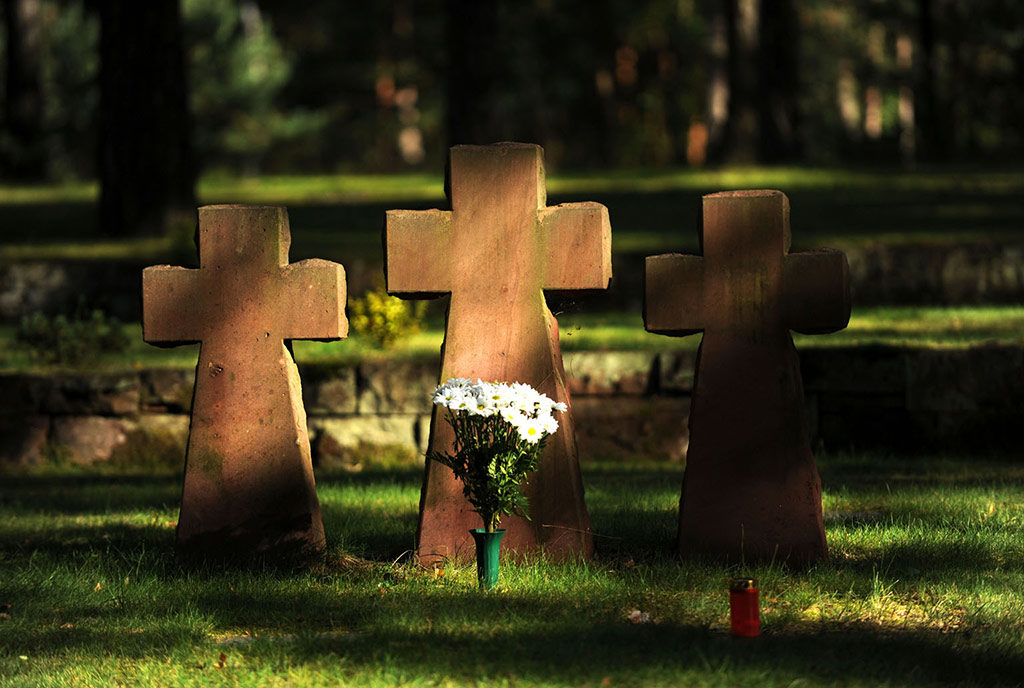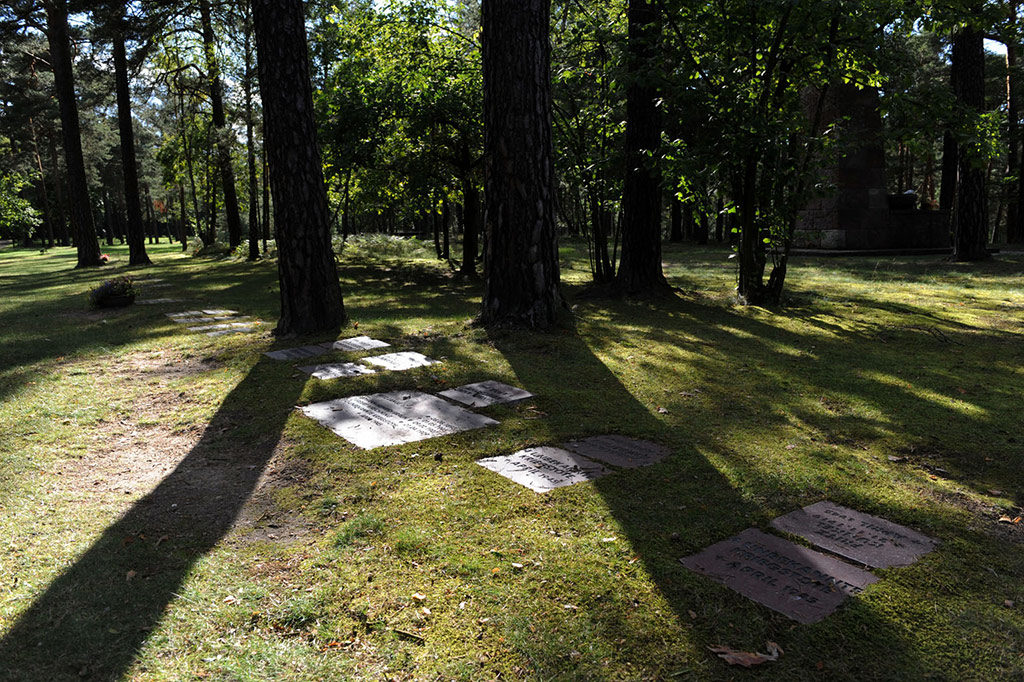- Cemetery
- Ernst-Teichmann-Straße, Halbe, Allemagne
- http://www.volksbund.de/kriegsgraeberstaette/halbe.html
The Halbe Forest Cemetery is one of the largest wartime cemeteries in Germany. More than 40.000 people died in this area during the last days of April 1945. Today, the Halbe Forest Cemetery is the resting place of some 24.000 victims of the Battle of the Halbe Pocket, including soldiers, civilians and Soviet forced labourers.
At the end of April 1945 more than 40.000 people died in the Battle of the Halbe Pocket. The warm weather of the first days of May accelerated the decay of the dead bodies, so that they had to be buried quickly. In order to counter the danger of epidemics, the local Soviet occupying authority stipulated that the dead were to be buried immediately where they lay, be it in mass graves, in gardens or in shell craters. As a result, numerous provisional gravesites were created in the forests and along the pathways; many single graves were dug in the gardens of the local villagers.
In 1951, six years after the battle, a local Protestant minister, Ernst Teichmann, initiated the gathering of the bodies buried in and around Halbe into a central cemetery. Close to the village of Halbe was a 7 ha forest area, large enough to accommodate all the burials from the area of the pocket. The cemetery, with its eleven large fields of graves, was designed by Walter Funcke und Karl Foerster.
Today, the Halbe Forest Cemetery is the resting place of some 24.000 victims of the Battle of the Halbe Pocket, including soldiers, civilians, Soviet forced labourers, and also of some people who were killed at the German execution site in Berlin-Tegel and at the Ketschendorf internment camp. The re-burials have continued to this day. In 2002, the German War Graves Commission assumed responsibility for the care of this largest and most important cemetery in the state of Brandenburg.


